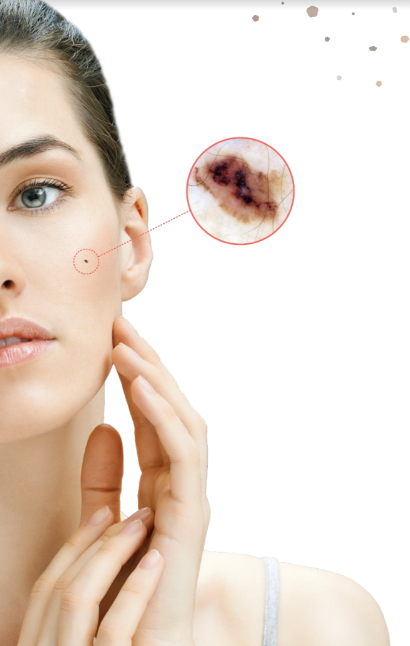
Check for Signs of Skin Cancer
The most likely skin cancer spots in the human body are those areas that are exposed to the rays of the sun, especially the UV rays.
These exposed spots are the scalp, face, lips, ears, neck, chest, arms, hands and legs. However, it can also affect some unexposed parts like the palms, below the nails and genitalia.
Whatever the type of skin cancer one is suffering from, it is absolutely important that the condition is detected early. A patient won’t normally know cancerous growth on the skin from other skin infections.
That’s why, for early detection of cancer, it is important that you get your skin condition examined by a health professional as early as possible.
Early Diagnosis & treatment of skin cancer offers the best chance of survival and even total recovery to a patient. Most people don’t think of cancer when they get affected but an early visit to the skin cancer doctor can make a huge difference
Diagnosing Skin Cancer
Health professionals experienced in skin cancer would be able to correctly detect skin cancer but there could be the odd exception.
It is best to consult health professionals who have special skills and interest in skin cancer, and know how to detect skin cancer early as they usually have the experience of correctly managing the cancer.
Skin cancer doctors have the tools and technology at their disposal to efficiently manage skin cancer..
It is much easier to detect skin cancer today with the advent of skin cancer detection using machine learning, which makes the process more accurate than ever before.
The technology nowadays are way more sophisticated and offer high quality total body imaging to effectively and accurately spot skin cancer.
Depending on the type and extent of skin cancer that the patient is suffering from in most cases the cancer test is usually done through a biopsy. The challenge for the doctor increases depending on how much the cancer has spread.
Face and Scalp
The face and scalp are two particular areas of the body that are exposed to the sun and its UV rays, increasing the chance of skin cancer.
Any unusual or persistent growth on the face or scalp should not be neglected. Get it examined by a skin cancer doctor as soon as possible.
Neck and Sholders
The neck is also exposed to the UV rays of the sun and the chances of skin cancer are higher in the neck just like it is in the other exposed areas of the body.
The shoulder is usually exposed to sunlight during the summer months when the chances of UV radiation are high. Visit the doctor for early detection and timely testing.
Front and Back of your Arms, Including Armpits
The arms do get exposed to sunlight during the summer months but armpits are not really areas where sunlight can reach easily.
Whenever, any unusual growth is noticed on the arms or armpit, don’t delay going to the doctor for a check up.
Front and Back of Hands, between your Fingers and under the Fngernails
It is not always that parts of the body exposed to the sun can get skin cancer. There are some unexposed areas too that can get affected.
These are the palms, back of hands, nails on fingers and web spaces between them. As always, early detection will make treatment easier.
Legs
Skin cancer can happen even in unexposed areas like the web spaces of the toes as well as the soles of feet.
As always, the sooner it is detected the better are the chances of treating it effectively.
Between Toes and Soles of Feet
Skin cancer can happen even in unexposed areas like the web spaces of the toes as well as the soles of feet.
As always, the sooner it is detected the better are the chances of treating it effectively.
When to See a Doctor
It’s not easy for anyone to look at any skin disorder and imagine that s/he needs any kind of checking for skin cancer. However, a skin cancer doctor, would know to differentiate nature of the skin disorder if it is cancerous or not. In case it’s a cancerous growth, s/he will refer manage and treat it for you. In the event that this needs to be referred on, the referral can be done to a skin cancer Specialist at a hospital. In case of any persistent skin disorder, please seek professional advice.

